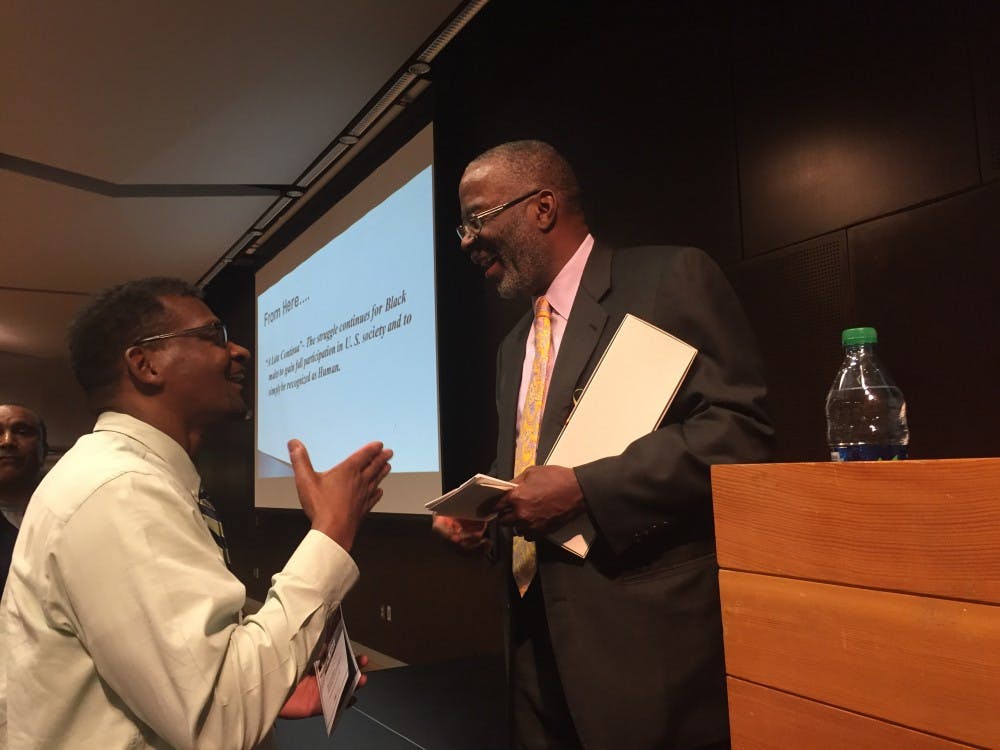In the wake of Baltimore’s recent racial distress, the 20th annual A. Wade Smith Memorial Lecture on Race Relations Wednesday night brought light to the negative stereotyping and policing of black males on college campuses.
UCLA education and sociology professor Walter R. Allen, who was the speaker, discussed his research on race and higher education in hopes of achieving future racial parity.
Allen said he hopes the lecture sparks a discussion about police relations with black communities at ASU.
“We are really studying the issues of stereotyping and policing of black males on campus, and demonstrating that, in this space, where you expect that to be least frequently encountered, it happens,” he said. “And that tells you more about how that happens, too, in the broader society.”
While racial tensions often begin on smaller scales such as college campuses, Allen said these issue later manifest themselves on a national scale.
“I think the President said it very well –– that (issues like Baltimore) are a reflection of some ongoing issues that have been going on and that we have to address as a country,” he said. “You have these explosions, but they are not disconnected when … you have this gap between the haves and the have-nots.”
Allen said he hopes his lecture sparks a dialogue at ASU to help combat these tensions.
“In many ways, it can be the beginning of a social movement to try to improve the policing of disenfranchised groups in our society,” he said. “More importantly, a move that can address the underlying causes of why this (issue) is so common.”
However, biomedical engineering freshman Dallas Charles said she felt that the lecture left questions unanswered.
“I feel like half of what I came here for was answered,” she said. “I was expecting more of an overview of what’s going on and how it can be fixed instead of saying what’s already going on.”
ASU hosts the event every year to memorialize A. Wade Smith, a professor and chair of sociology who had worked to improve race relations on campus before his death at age 43.
Smith and Allen had met in graduate school and became lifelong friends, which Smith’s eldest son, Art Smith, said makes this year’s event especially significant for the Smith family.
“Dr. Allen has been more than deserving to speak at this for years and years, and the fact that this is the 20th anniversary with one of my father’s best friends makes it very special,” he said.
Reach the reporter at aplante@asu.edu or follow her on Twitter @aimeenplante
Like The State Press on Facebook and follow @statepress on Twitter.




